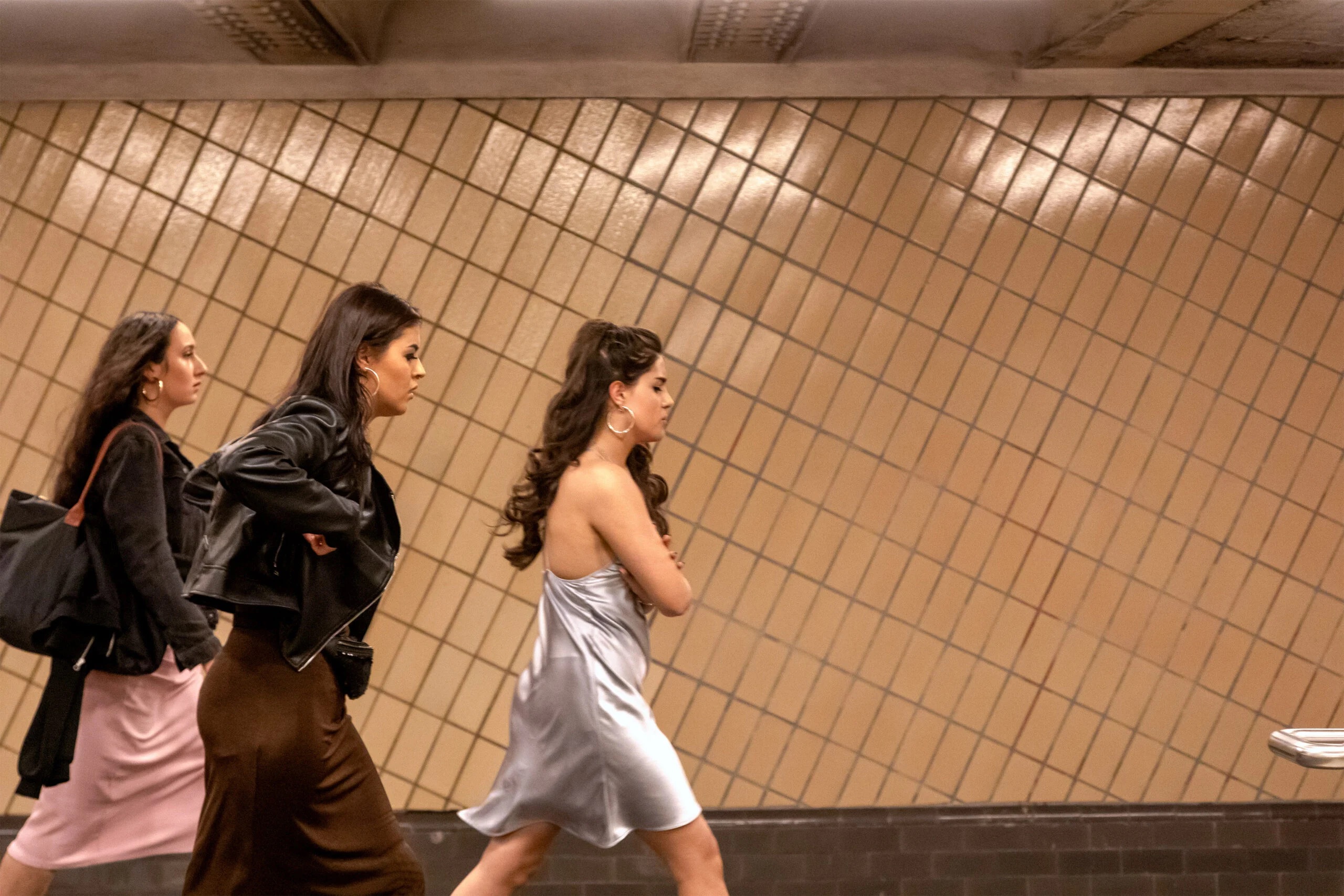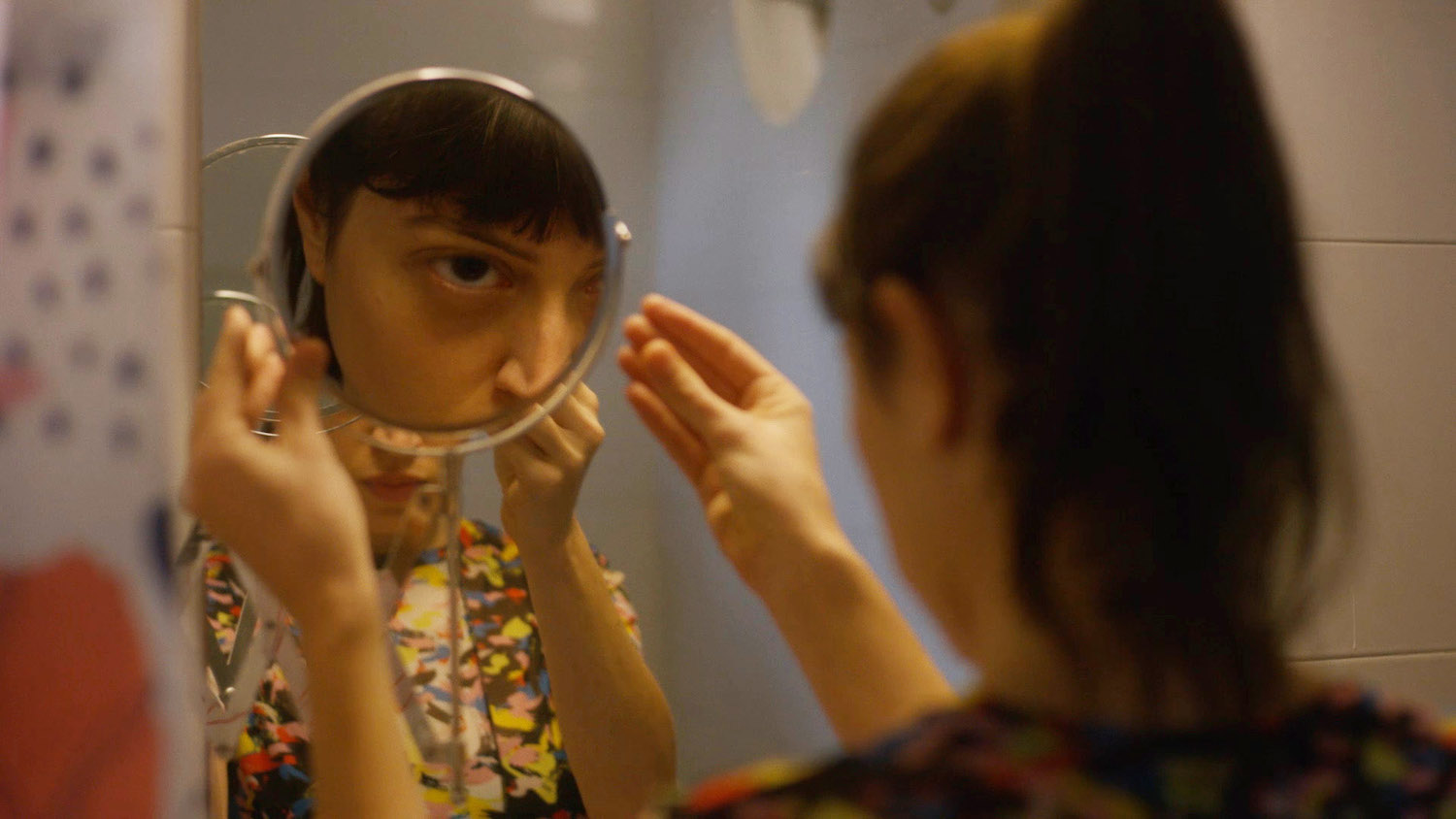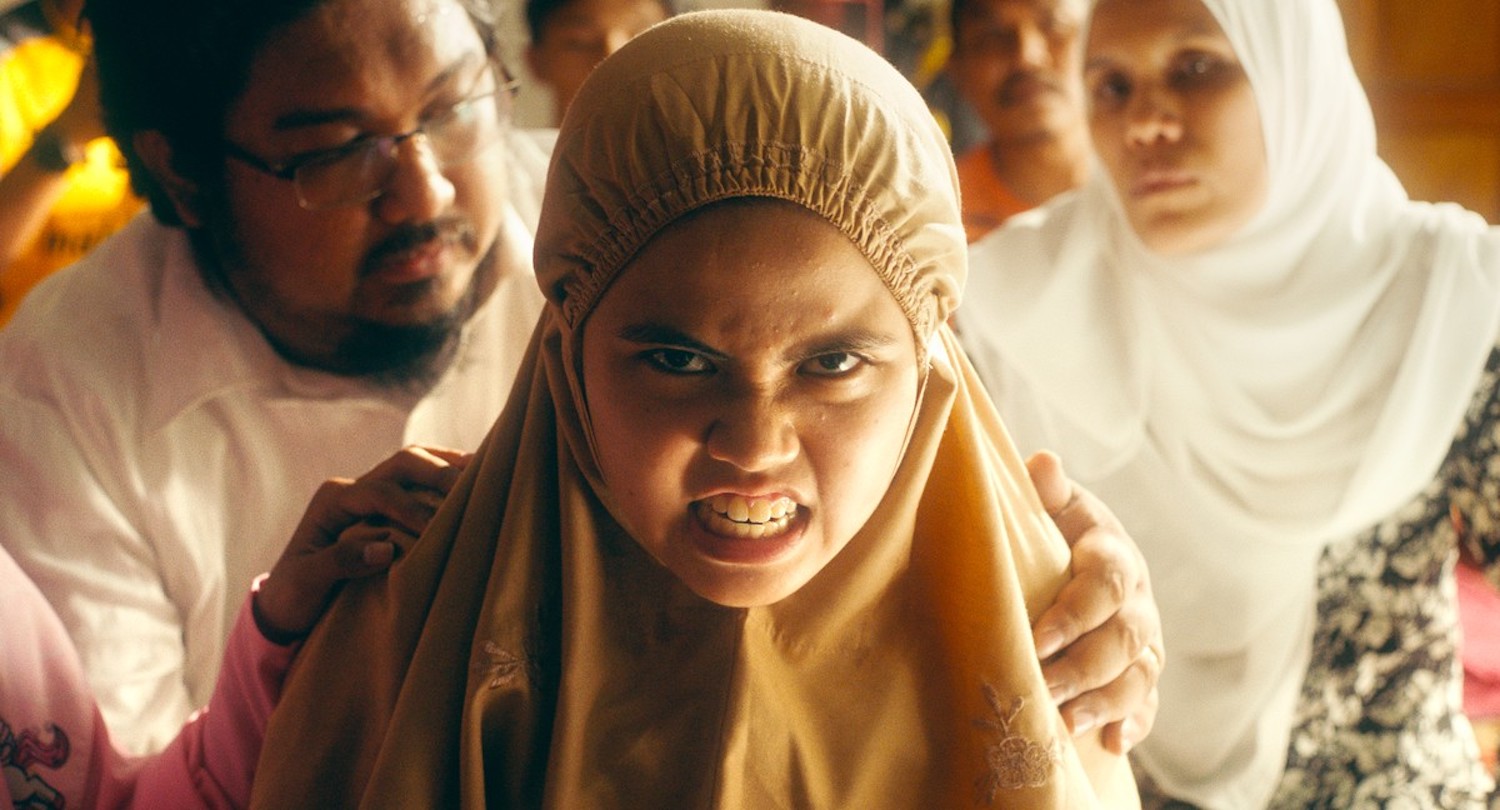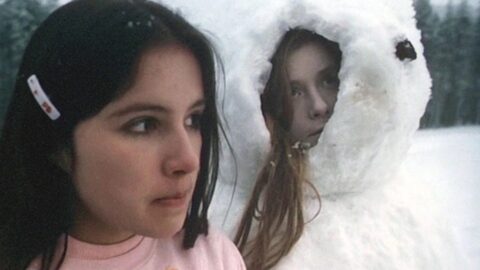16-21 April. It’s a rainy week in Cologne, with hail in between. The cinema becomes a place of refuge.
This year’s Internationales FrauenFilmfestival takes place in the Filmhaus, Filmforum NRW and Odeon. The festival switches each year between Dortmund and Cologne — it’s Cologne’s turn. In addition to a First Feature competition by female directors, the IFFF also includes sections such as Panorama, Begehrt — which shows queer cinema — and a focus on Rage & Horror accompanied by curator Sara Neidorf from the Berlin Final Girls Festival.
The cinema fills up; interviews with guests and filmmakers are shot; viewers arrive early and exchange thoughts before the films. One thing stands out: while other festivals are virtually only attended by industry representatives wearing their accreditation badges like trophies around their necks, the IFFF presents a true cross-section of society. People want to see these films. Weeks before the festival started one could read WHAT IF(FF) THE FUTURE OF FILM IS FEMALE? on posters and social media. Let’s answer that question and take a look at the program.

Rage and Shoegaze
The first feature competition comprises eight films, from coming-of-age stories to tales of families at the Christmas table to depictions of postnatal trauma.
Three films stood out in particular:
The high-calibre Scrapper (2023) by Charlotte Regan is an Aftersun-ish (Charlotte Wells, 2022) father-daughter story where daddy-issues become the tone of the film. And Lola Campbell’s between-the-lines interpretation of protagonist Georgie. She is the scrapper; angry, filled with rage. A touching film which unfortunately makes reconciliation too easy, reconstructing the classic family picture through narrative inconsistencies.
The Dutch film Melk (Stefanie Kolk, 2023) tells the Sisyphean story of the pregnant Robin, who, after a stillbirth, is now confronted with her loss through the continuing daily production of breast milk. Her odyssey not to throw her milk away, but to donate it, leads her on a grief-laden journey. The displacement and almost revitalisation of vast quantities of milk, to a body that could be her baby, impressively shows how the psyche can function under trauma. A shoegaze-y fable of invisible problems.
Ellbogen (Asli Özarslam, 2024, above), on the other hand, is filled with light and sound. There is just as much discourse bubbling beneath the surface, but Ellbogen manages to initially keep this in the throbbing bass of the party until an accident causes everything to spiral out of control — turning initial euphoria into a nightmare. In the end, Ellbogen wins the 10.000 euro prize.

Panorama Steals The Show
The Panorama section — curated by Vivien Buchhorn and Bernadette Kolonko — offers a window into new cinematic landscapes, experiments and voices worth listening to. The programme blends documentary and experimental film, puts features together with context-changing shorts, and offers discussions and safe spaces for exchange after screenings. Apart from the films, the video exhibition Those Who Kept The Light by Nastja Säde Rönkö — a barrage of 10 short films playing one after the other — was shown under the name Formfragen. The section is popular; what Forum does for Berlinale, Panorama does for IFFF.
There is, for example, the glitchy Face of the Jellyfish (Melisa Liebenthal, 2022, above), which deconstructs the face as a moral surface when the protagonist wakes up with a new face. The film explores the fragmentation of identity and lack of consequences — one must think of Hiroshi Teshigahara’s The Face of Another (1966).
In King Coal (Elaine McMillion Sheldon, 2023) and The Night of the Factory Girls (Kim Geonhee, 2023), both directors show an incredible tact for interspaces, portraying locations and their associated culture being drastically taken ad absurdum. King Coal films a small American town that has lived so much from coal mining that this toxic stone has seeped deep into the realities of the inhabitants’ lives. King Coal is by no means an euphemism but the name of an actual festival taking place in the city. The Night of the Factory Girls, on the other hand, essayistically explores how places — in this case, a textile labour camp in Japan — simply disappear from our collective memory while shopping malls and new buildings extinguish any allocated memory in our heads.
The highlight of the programme is the 13-year long-term study Apolonia, Apolonia (2022). Director Lea Glob turns the French painter Apolonia Sokol, who is little more than a child at the beginning of the film, into a projection space of patriarchal and market structures. Glob accompanies her from Apolonia’s home theatre to Norway, back to Paris, to Turkey and through all kinds of life crises. But something unexpected happens. The director almost dies during the birth of her child and Apolonia’s (girl)friend commits suicide. Suddenly we find ourselves sitting in front of a triptych of female trauma that captures oppression and exploitation with extraordinary precision. It is rarely possible to bring such brutal truth to the screen. The silence after the screening was louder than most applause.

Final Girls on Screen
In addition to the classic festival-esque films in the other sections, the focus on Rage & Horror provides a much-needed counterpoint. The question of why so few genre films are shown at festivals should be asked more often. By coincidence, the big genre film festival Fantasy Film Fest took place at exactly the same time, only about 200 metres away from the IFFF Hub. When observing the festival-goers of both places, few people visited both — the fronts were clear. It can be said that films like Bitten (Romain de Saint-Blanquat, 2023), which screened at the Fantasy Film Fest, would also have had a certain right to exist at the IFFF. Still, it’s hard not to praise the curation of the Focus section.
Apart from some much talked about greatest hits from previous festivals like Tiger Stripes (Amanda Nell Eu, 2023), Perpetrator (Jennifer Reeder, 2023) and the pirate-copy-collage Hello Dankness (Soda Jerk, 2022) as well as Věra Chytilová’s (best known for Daisies [1966]) horror excursion Wolf’s Hole (1987, feature image), the absolute coup was Colin Higgins’ cult film 9 To 5 (1980). This subversion of a non-horror film as a closing film pick, accompanied by several hymns of applause and breathless laughter, worked.
So what will be remembered? A festival that sets a new standard, which, in addition to incredible offers such as all-day childcare, feminist workshops and precise curation, has understood how to mobilise and inspire people for cinema. We look forward to next year; back again in Dortmund.
Niklas Michels is a film critic and curator who, in addition to his film work, researches the space between ethics and aesthetics at RWTH Aachen University.
